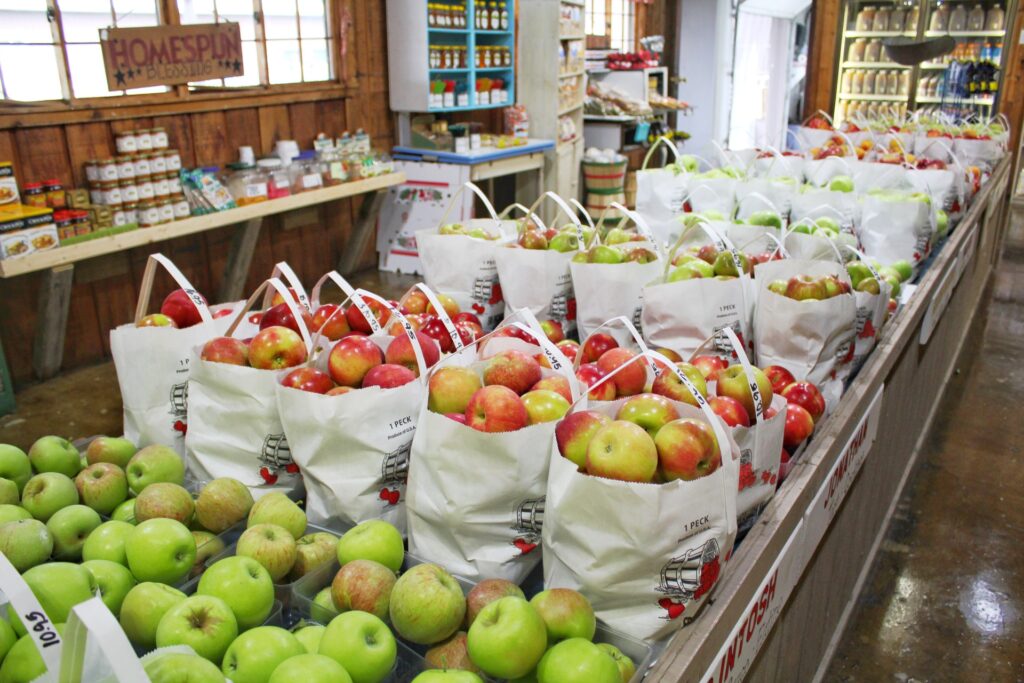Starting a grocery store can be an exciting and profitable venture. With the right planning, organization, and execution, you can establish a successful business that caters to the needs of your local community. In this comprehensive guide, we will walk you through how to start a grocery store and the considerations involved in setting up your own grocery store. The article is introduced by https://bitsofdays.com/
Understanding the Grocery Store Industry

Before diving into the specifics, it’s crucial to have a solid understanding of the grocery store industry. The market is highly competitive, with both large chain supermarkets and smaller independent stores vying for customers’ attention. To stand out and succeed, you need to differentiate your store by offering unique products, excellent customer service, and a well-curated shopping experience.
Conducting Market Research
To ensure the success of your grocery store, thorough market research is essential. Start by identifying your target market and its needs. Study the demographics of your area, including the population size, income levels, and consumer preferences. This information will help you tailor your store’s offerings and marketing strategies to appeal to your target audience effectively. Discover the small business profit margin.
Creating a Business Plan
A well-crafted business plan is a roadmap to your grocery store’s success. It outlines your goals, financial projections, marketing strategies, and operational processes. Take the time to research and develop a comprehensive plan that covers all aspects of your business. This document will not only guide your decision-making but also serve as a valuable tool when seeking funding or partnerships.
Securing Funding
Starting a grocery store requires a significant initial investment. Unless you have sufficient personal capital, you will likely need external funding. Approach banks, and investors, or consider government loan programs to secure the necessary funds. A solid business plan and a convincing pitch will increase your chances of obtaining the financial support you need.
Choosing a Location
The location of your grocery store plays a critical role in its success. Look for an area with high foot traffic and easy accessibility. Consider factors such as parking facilities, proximity to residential areas, and competition. Leverage demographic data from your market research to identify the most suitable location for your store.
Store Layout and Design
Creating an inviting and efficient store layout is essential for attracting customers and maximizing sales. Optimize the use of available space by carefully planning the placement of shelves, aisles, and product displays. Consider implementing signage and wayfinding systems to enhance the shopping experience and make navigation easier for customers.
Building Supplier Relationships
Establishing strong relationships with suppliers is crucial for maintaining a consistent inventory and obtaining competitive pricing. Research and identify reputable suppliers that offer a wide variety of products, competitive wholesale prices, and reliable delivery schedules. Cultivating mutually beneficial partnerships will ensure a steady supply of quality products for your customers.
Staffing and Training
Your store’s success hinges on the performance and dedication of your staff. Hire competent employees who possess excellent customer service skills and a passion for the grocery industry. Provide thorough training to ensure they understand your store’s policies, procedures, and product offerings. Empower your team to go above and beyond to create a positive and memorable shopping experience for customers.
Marketing and Promotion
Effectively marketing your grocery store is essential for attracting and retaining customers. Develop a comprehensive marketing strategy that includes online and offline channels. Utilize social media platforms, local advertising, and community events to raise awareness and generate buzz around your store. Offer promotions, loyalty programs, and discounts to incentivize repeat business.
Providing Excellent Customer Service
In today’s competitive landscape, exceptional customer service is key to differentiating your grocery store from the rest. Train your staff to prioritize customer satisfaction and go the extra mile to exceed expectations. Foster a friendly and welcoming environment where customers feel valued and appreciated. Address feedback and address feedback promptly to continuously improve your store’s offerings and customer experience.
Embracing Technology
Incorporating technology into your grocery store operations can streamline processes, enhance efficiency, and improve customer convenience. Consider implementing a point-of-sale system with inventory management capabilities to track sales and monitor stock levels. Explore online ordering and delivery options to cater to customers’ changing shopping habits. Embrace digital marketing strategies to reach a wider audience and stay connected with your customers.
Stocking a Variety of Products
One of the key aspects of a successful grocery store is offering a wide selection of products that meet the diverse needs and preferences of your customers. Stock both popular and niche items, including fresh produce, pantry staples, dairy products, meat, and seafood. Consider partnering with local farmers and suppliers to provide fresh and locally sourced options. Regularly review and update your product offerings based on customer feedback and market trends.
Creating an Engaging Store Atmosphere
Beyond the products you offer, the overall atmosphere of your store plays a crucial role in attracting and retaining customers. Create a visually appealing and well-organized store layout that makes shopping a pleasant experience. Pay attention to lighting, signage, and cleanliness to create a welcoming ambiance. Consider incorporating music, pleasant scents, and attractive displays to enhance the sensory experience and make customers feel comfortable and inspired to explore.
Sustainability and Environmental Responsibility
In today’s environmentally conscious world, integrating sustainable practices into your grocery store can resonate with customers and differentiate your business. Explore options for reducing packaging waste, offering reusable shopping bags, and promoting eco-friendly products. Consider partnering with local organizations or initiatives focused on environmental conservation to demonstrate your commitment to sustainability.
Community Engagement
Building strong connections within your local community is vital for the long-term success of your grocery store. Participate in community events, sponsor local initiatives, and collaborate with nearby businesses. Engage with customers through social media platforms, responding to inquiries and providing helpful information. Consider hosting workshops or cooking demonstrations to educate customers about healthy eating and culinary skills.
Monitoring and Adapting to Market Trends
The grocery store industry is dynamic, with evolving consumer preferences and market trends. Stay updated on industry news, emerging products, and changing consumer behaviors. Regularly analyze sales data, customer feedback, and market research to identify opportunities for improvement and adapt your strategies accordingly. Stay agile and willing to innovate to stay ahead of the competition.
Delivering a Memorable Shopping Experience
Ultimately, the success of your grocery store relies on delivering a memorable shopping experience that keeps customers coming back. Focus on personalization, attention to detail, and exceptional customer service. Train your staff to anticipate customer needs, provide assistance, and create positive interactions. Foster a warm and friendly atmosphere where customers feel valued and appreciated.
Conclusion
Starting a grocery store requires careful planning, dedication, and a commitment to delivering a superior shopping experience. By understanding your target market, creating a comprehensive business plan, and implementing effective strategies, you can establish a successful and thriving grocery store. Remember to stay adaptable, embrace technology, and prioritize customer satisfaction.
You may like to read 9 business thoughts for entrepreneurial students

